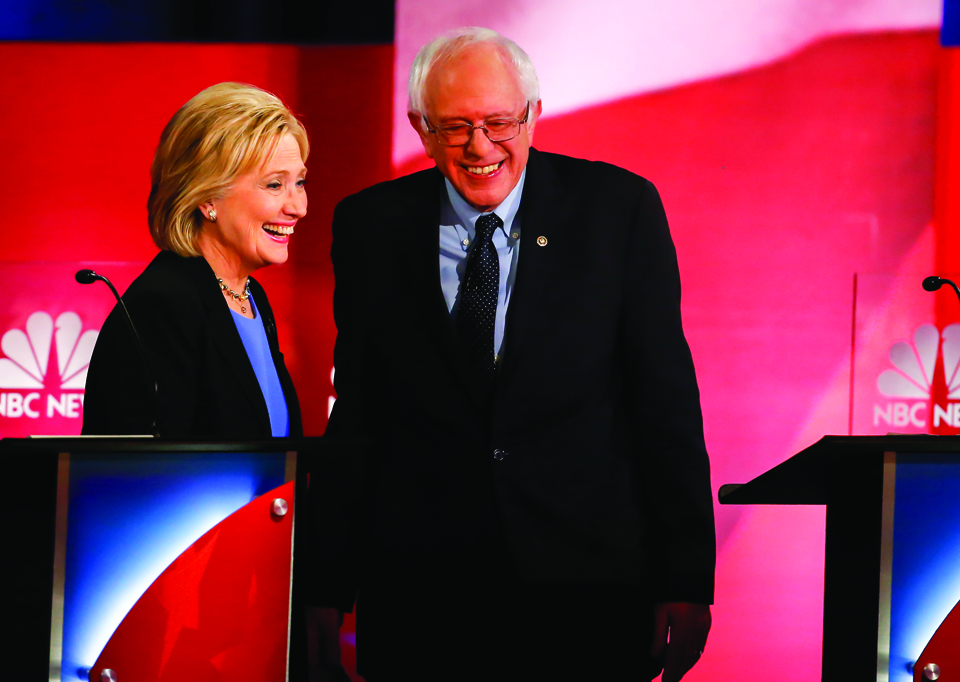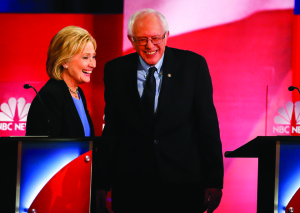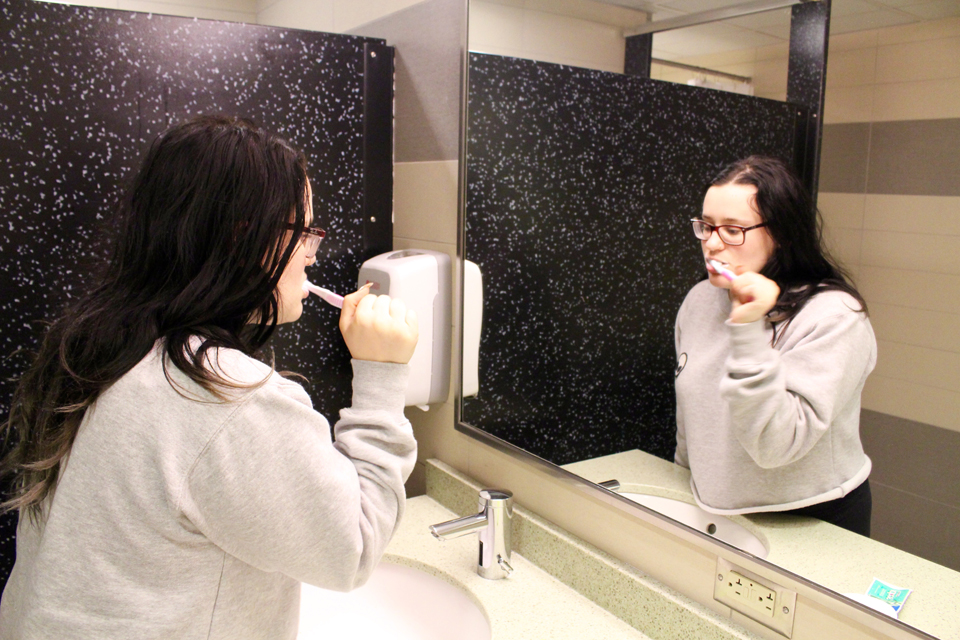
By Julian Routh: Editor-In-Chief

This column marks the beginning of “Capital Pundits,” a political blog featuring daily analysis and commentary on the 2016 Presidential Election by Julian Routh and the staff of The Duquesne Duke. You can read this article and more online at
www.capitalpundits.com.
If anyone knows how dangerous it is to underestimate your opponent come primary election season, it should be Hillary Clinton.
After all, the former secretary of state was the heavy favorite for the Democratic nomination in 2008 before a young senator from Illinois, Barack Obama, pulled off one of the greatest upsets in presidential election history.
But as the Iowa caucuses (Feb. 1) and New Hampshire primary (Feb. 9) quickly approach, it doesn’t seem like Clinton has learned much from her past; her campaign advisors recently said she “made serious miscalculations” by underestimating the strength of her competitor, Vermont Sen. Bernie Sanders.
Those miscalculations have opened the door for a political movement within the Democratic voter base — a movement that could thwart Clinton’s presidential ambitions and bring on a repeat of ’08. It is no longer apt for Clinton to narrow her vision toward the general election; instead, she should treat Sanders like she failed to treat Obama.
When Obama beat Clinton for the nomination in 2008, he channeled the party’s inner frustrations about the failed Iraq War into a genuine, fiery message of hope and change. Using the 2006 midterm elections as his guide, he appealed to the many voters who were fed up with the politics of Washington and wanted a progressive in office.
He poured time and money — which he earned mostly from small internet donations — into his campaigns in Iowa and South Carolina, which proved to be paramount wins. And he became an internet phenomenon by connecting with key demographics on a personal level.
Sounds familiar, huh?
Since launching his campaign last May, Sanders has inspired voters with his rallying message that American political and economic systems favor the wealthy. Like Obama’s focus on Iraq, Sanders has targeted Wall Street corruption to galvanize and empower the Democratic voter base.
He has built a strong donor base to rival that of Clinton, whose network of Washington connections is enough to fuel any candidate financially. But Sanders has kept up, fundraising $33 million in the final quarter of 2015 to Clinton’s $37 million.
And even though Clinton has dedicated most of her resources to the early contests, Sanders has closed the gap in Iowa and has taken a sizeable lead in New Hampshire, according to recent polls.
That’s not to say that Clinton has slept through primary season. Recent national polling data shows she still has a substantial lead over Sanders. She appears to be on track to win most March and April primaries, as well as the black, Hispanic and moderate vote in the south.
But if her campaign honestly believes she can survive losses in Iowa and New Hampshire and still capture the nomination, let 2008 be a guide. It didn’t happen then, and it won’t happen now if she doesn’t inspire the electorate or fear her opponent.
After Obama won in 2008, think tank analyst and New Democrat Network founder Simon Rosenberg said, “the single most important thing that happened was the Clinton campaign always underestimated Sen. Obama.”
History rarely gives second chances, but Clinton has one now and should take this opportunity to capitalize.




